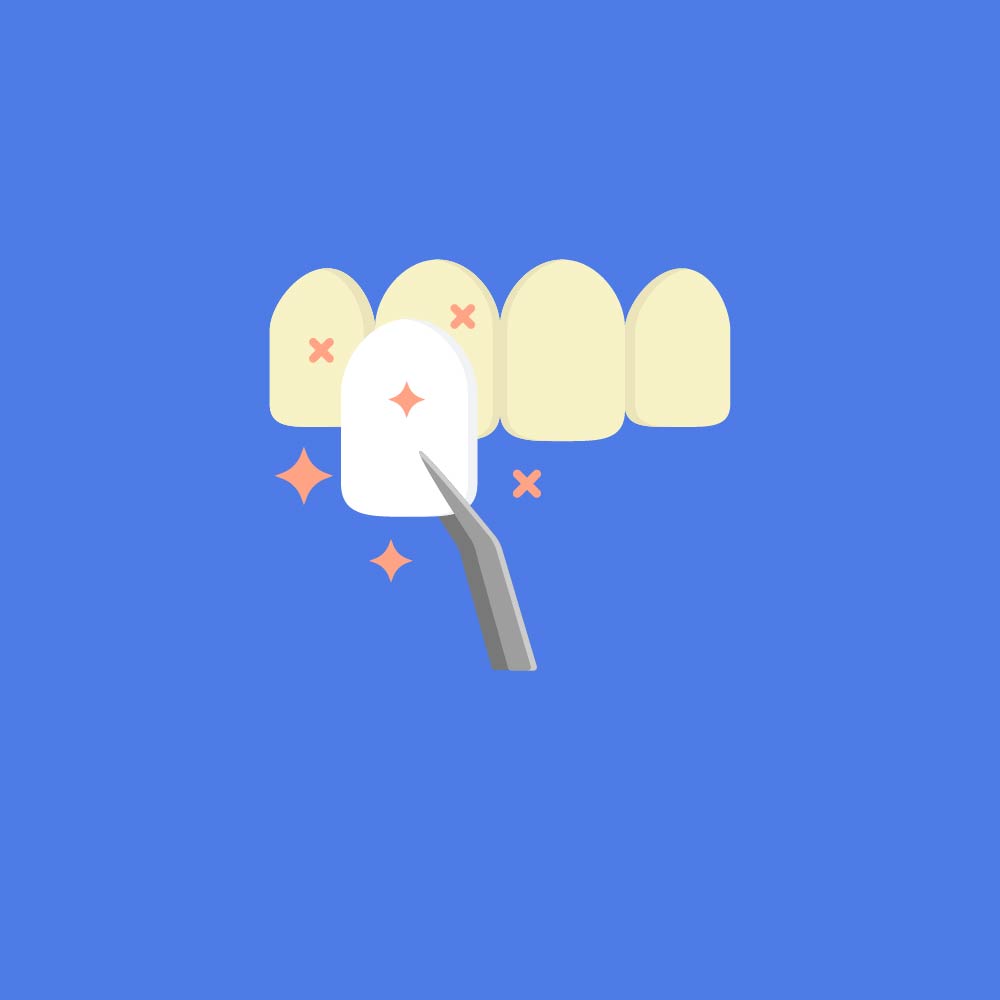Dental Procedure
Veneers
Veneers
For people who desire an immaculate, picture perfect smile, Dr. Francisco can provide you with porcelain dental veneers that are a great solution.
Dental veneers (also referred to as porcelain veneers and / or dental porcelain laminates) are thin, custom-made tooth-colored shells designed to cover the front surface of teeth to improve your smile’s appearance. These shells are adhered to the front of the teeth through a bonding process resulting in changes to the teeth’s original shape, color, size, and / or length.
Dental veneers are used to resolve several types of dental issues including:
- Discolored Teeth
- Chipped, Broken or Worn Teeth
- Uneven, Misaligned, or Irregularly Shaped Teeth
- Gaps Between Teeth
Dental Veneer Benefits
- Natural Looking Teeth
- Tolerated Well by the Gums
- Stain Resistance of Porcelain Veneers
- Can Make the Teeth Appear Whiter than the Natural Teeth
- Stronger than Crowns and Generally Do Not Require as Much Shaping
Types of Dental Veneers
Dental veneers may be made from resin composite materials or porcelain. Porcelain veneers are more resistant to stains than resin veneers. They also reflect light in a more similar manner to your natural teeth than resin veneers.
Are Dental Veneers Right for You?
Installing the Veneers
From start to finish, the veneer placement procedure can typically be done with two visits over the course of approximately 6 weeks. At your first appointment, Dr. Francisco will discuss with you any oral health concerns that might possibly impact the outcome of the procedure.
During this first visit, the surface of the teeth will be reshaped so that the veneers will fit snugly on the teeth. This procedure may be done under a local numbing agent if necessary. Molds will then be taken of your teeth and sent to a lab where the permanent veneers will be fabricated. It usually takes 2-4 weeks for the veneers to arrive at Dr. Francisco’s offices. Temporary veneers may be placed until the permanent ones are placed at the next appointment.
At your second visit, Dr. Francisco will fit you with the new veneers which might require multiple steps of trimming and shaping in order to achieve a proper fit. Your teeth will then be cleaned, polished and etched to allow for a strong bond. A specific dental cement is applied to the underside of the veneers and they are placed on the teeth. Once properly positioned, Dr. Francisco will shine a specialized light onto the veneers which will initiate a chemical reaction producing a strong bond between the teeth and veneers. Any excess cement is removed and a final check of the bite for alignment and comfort is made. Your dentist may ask you to return for a follow-up visit in a couple of weeks to check your gums and the veneer’s placement.
Maintenance Post-Procedure
After the procedure, the dentist will likely ask to see you in a few weeks to check the placement of the veneers and your gums.
The veneers are known to be durable and can last a long time before they need to be replaced. It is still important, however, to continue your oral hygiene method in terms of flossing and brushing your teeth using a non-abrasive toothbrush.
Although porcelain veneers can be polished, it is important to take care of them because they can not be repaired if they get chipped. Rather, they must be replaced altogether.
Limitations and Risks
- The process is not reversible.
- Chipped or cracked veneers usually can’t be repaired.
- A possible increase in tooth sensitivity due to the removal of some enamel prior to placing the veneers.
- Color matching might not be exact and the color can’t be altered once in place. Any planned teeth whitening should be done prior to getting veneers.
- Though unlikely, veneers can dislodge and fall off. To minimize this possibility, don’t chew hard objects like ice, pencils, hard candy, and fingernails. In general, avoid placing too much pressure on the teeth.
- If not maintained properly, teeth with veneers can decay which might result in the need for the placement of a crown on the tooth.
- For those who have unhealthy or weakened teeth, or gum disease, veneers might not be a good choice.
- If you grind your teeth, you might not be a candidate for veneers due to the increased chance of cracking or chipping the veneers.

